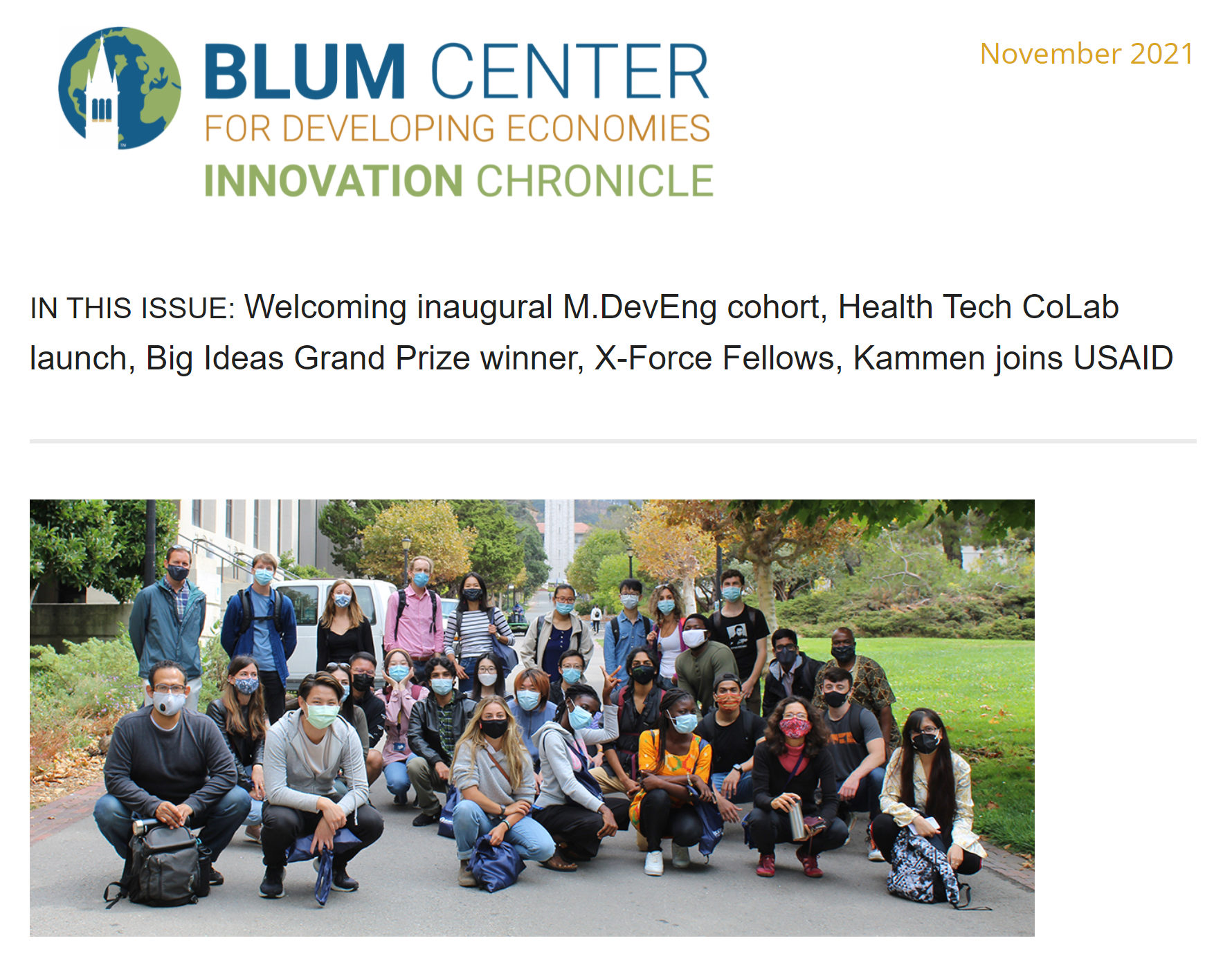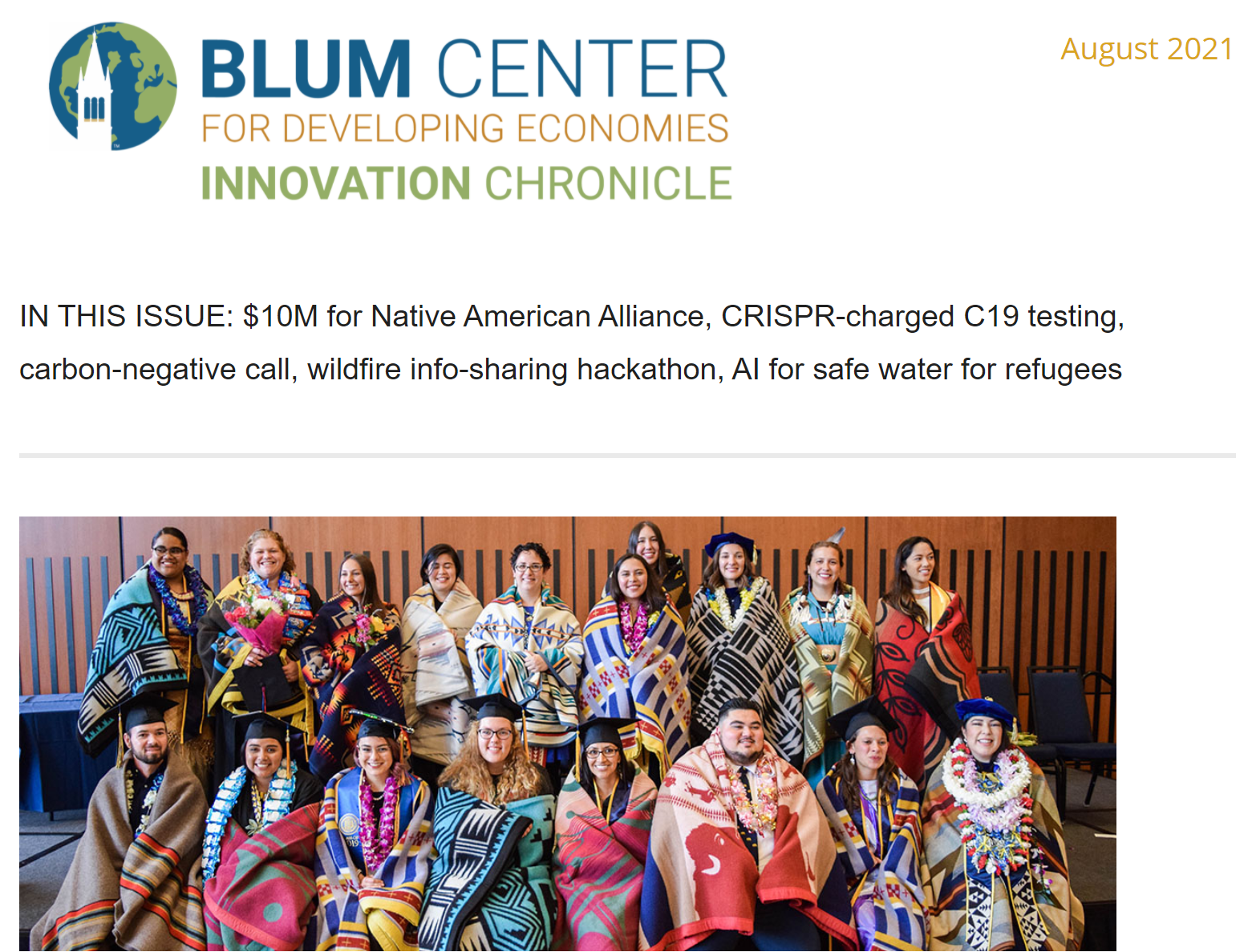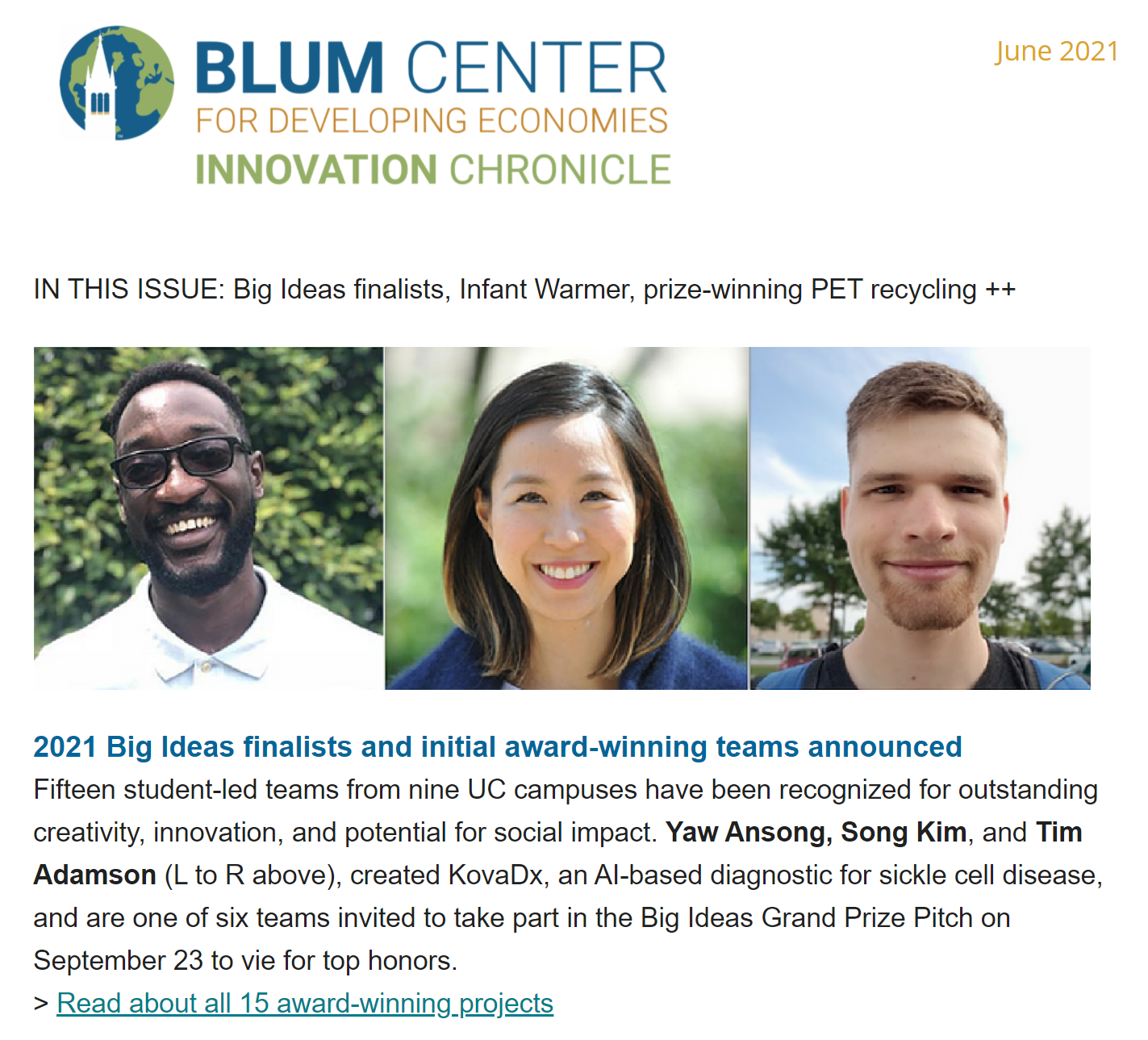Author:
Luis Flores
“We’re doing research in reverse,” explained student researcher Stephanie Ullrich. “We’re going from practice to theory.”
 This semester, the Blum Center for Developing Economies welcomed five students from the Undergraduate Research Apprentice Program (URAP) to assist Professor Ananya Roy and research fellow Emma Shaw Crane in the development of a book on the recently held Territories of Poverty conference. These student researchers are not motivated by an imperative to publish, nor are they seeking a key to the gates of the academy; rather, these young scholars embody a paradigmatic shift that is at the core of the Global Poverty and Practice (GPP) minor. Their research approach is informed by the contextual understandings developed in lecture halls and reading rooms but cedes formative authority to the inhabitants of the territories of poverty.
This semester, the Blum Center for Developing Economies welcomed five students from the Undergraduate Research Apprentice Program (URAP) to assist Professor Ananya Roy and research fellow Emma Shaw Crane in the development of a book on the recently held Territories of Poverty conference. These student researchers are not motivated by an imperative to publish, nor are they seeking a key to the gates of the academy; rather, these young scholars embody a paradigmatic shift that is at the core of the Global Poverty and Practice (GPP) minor. Their research approach is informed by the contextual understandings developed in lecture halls and reading rooms but cedes formative authority to the inhabitants of the territories of poverty.
Stephaine Ullrich, a senior pursuing degrees in Peace and Conflict Studies and Media Studies, will work along with Anh-Thi Le, Aviya McGuire, Somaya Abdelgany, and Rebecca Peters, on the development of a book to be published next semester. In addition to a deep interest in global citizenship, Ullrich and her student colleagues share a new outlook on development practice and research.
Ullrich, who has worked on a variety of initiatives in Spain, Guatemala, northern India, and Uganda, has entered academic research after a great deal of in-the-field experience. While in India, Ullrich worked for Tata, one of the largest companies in India. During her time there, she conducted research aimed to increase the role of women in the management of water wells. She then completed her GPP practice experience in Uganda, where she worked with the Uganda Village Project on its “Healthy Villages” project. Ullrich worked with community-based organizations on efforts to increase virus awareness.
Student research assistant Rebecca Peters, a senior in International Development & Economics, shares Ullrich’s community-oriented approach. “I didn’t say, ‘I’m here to help you,’ but instead said, ‘let’s have a conversation,’” explained Peters, recounting her research approach in Cochabamba, Bolivia. During the summer of 2012, Peters conducted interviews and surveys in Bolivia to document rural access to water and sanitation services. She chose to work with Agua Para el Pueblo (water for the village), largely because of the value this NGO places on community relationships and participation. This commitment to listen rather than impose is among the transformative innovations of the GPP experience.
The cautiousness displayed by Peters and Ullrich results from exposure to the multitude of failed systems that together create conditions of poverty. The fear of inadvertently reinforcing these structures through their fieldwork is itself an attribute of the new generation of poverty scholars. Yet Peters and Ullrich do not allow consciousness to become disabling.
“Not becoming paralyzed is something that the minor really helps you with,” explained Peters. She reasoned that the GPP minor’s coursework on the ethics and morality of fieldwork allowed her to gather research while challenging north-south development paradigms.
In addition to their research with Professor Roy, Peters and Ullrich co-teach a student-led deCal course on water and international human rights. In their second semester of teaching, Peters and Ullrich expose 30 students to international discourses of human rights and water and their relationship to public policy, anthropology, sociology, economics, and even philosophy. In addition to examining case studies, Ullrich and Peter’s course bring in guest lecturers, and concludes with capstone group presentations.
The new generation of poverty scholars is bound neither by disciplinary borders, linear development theories, nor dichotomous understandings of poverty. Perhaps, more than progressing from practice to theory, this young group of scholars is forcing theory and practice to develop not as a binary, but together as one.



